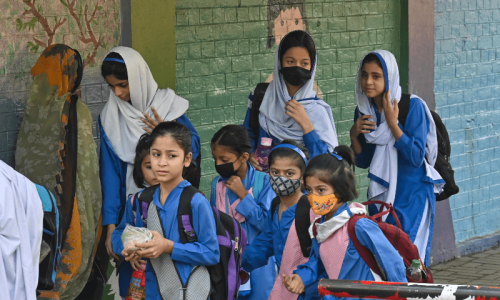LAHORE, March 4: The proposed organ transplant law is designed to protect ‘kidney trade mafia’, alleges an NGO working for protection of citizens’ rights in a study.
“The cabinet-approved law, supposed to check the growing kidney trade in the country, not only miserably fails to bring this business under some ethical framework, but, in fact, provides legal cover to all the horrible things peculiar to this notorious business of human organs,” it laments.
The report says it appears that the government wants to legislate on the issue only to comply with the Supreme Court’s order asking it to bring the sector under some regulations. The law after being enacted will serve more as a cover for many surgeons involved in the organ trade whose business was largely considered as ‘unethical’, it apprehends.
The ordinance sadly fulfills the requirements of the kidney trade mafia as it legalises all the acknowledged unethical practices in the sector, it deplores.
The proposed law not only allows donors who are genetically related to the patient but also extends this permission to relatives of his or her spouse and offspring of wet-mothers.
The law also allows the non-relative donors after a formal approval of an `evaluation committee’ with dubious composition and astonishing powers, the report says.
“The experts ask why the government bothers to bring legislation if non-relative donors are going to be allowed,” it says.
It is pertinent to mention here that the legislations in other countries on the issue have been brought only to check the non-relative donations.
It fears the proposed legislation, in fact, will open a floodgate of exploitation of women and the poor. “If promulgated in its present form, it will defeat its professed objective - to prevent exploitation of the most vulnerable - and may indeed serve to provide legal protection to some of the activities it sets out to control,” says Dr Farhat Moazzem of the Centre for Biomedical Ethics and Culture, Karachi.
“A careful technical review of the proposed ordinance titled ‘Transplantation of Human Organs and Tissues Ordinance, 2007’ reveals major problems with it, and if not corrected, will give legal coverage to the existing unethical and immoral practices and will fail to create an honest, transparent, state of the art cutting-edge system of ‘science and art of modern transplantation’, defeating the purpose of the entire exercise,” says Dr Saeed Akhtar, a veteran ethical transplant surgeon, who works with Shifa International Hospital, Islamabad.
There are rumours that the government intends to convert the ordinance into a bill and table it in the parliament.
According to the proposed law, the federal government will appoint evaluation committees consisting of surgical specialists, medical specialists and local notables having a good record of social service. Another draft of the law suggests the district-wise committees.
The committees are far too small and their constitution inherently lacks mechanisms to ensure transparency within their own working and enforcement of the law in its true spirit, it says.
In India, the report mentions, the district committees are headed by deputy commissioners while representatives of civil society, medical community and government are also included.
The evaluation committee is empowered to declare a non-relative donor as volunteer. However, it has nothing to do with donors having ‘blood’ or some ‘legal’ relation with the patient, it adds.
The committee is also empowered to declare someone brain-dead, and at the same time decide about the appropriateness of the transplantation. This, the report apprehends, will lead to conflict of interests and potentials of exploitation where a person who is not brain-dead may be declared so because of the influence of the transplant team.
In most of the countries, the diagnosing doctor is not allowed to operate upon the patient for transplantation due to possibility of conflict of interests.
“It is a universally accepted norm in organ transplantation that committees that establish brain death must not be involved in any way or form in judging the ‘appropriateness’ of the organs being removed. They should have nothing to do with any aspect of the transplantation itself to avoid serious conflict of interests, unethical practice, and also loss of trust of the public,” according to Dr Farhat Moazzem.
The law also provides for an authority to monitor transplantation and enforce prescribed standards for recognised institutions, besides investigating and holding inquiry into the allegations of breach of any provision of the law.
The report also points towards an alarming possibility of inclusion of people involved in organ trade in these committees. If people with prior involvement in organ trade are nominated for such committees, they can hijack the entire system leading to its complete failure, it fears.














































Dear visitor, the comments section is undergoing an overhaul and will return soon.